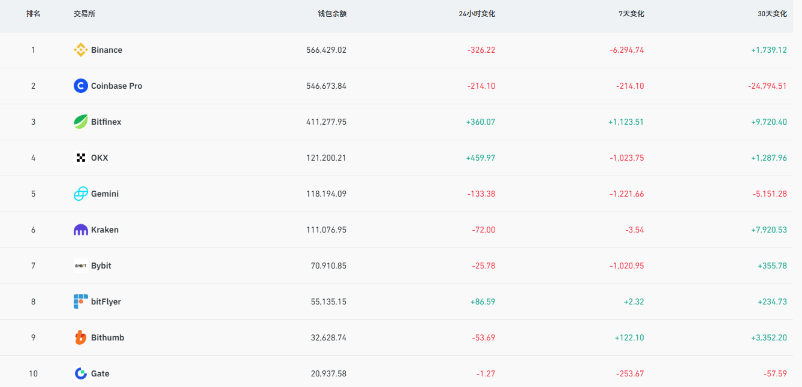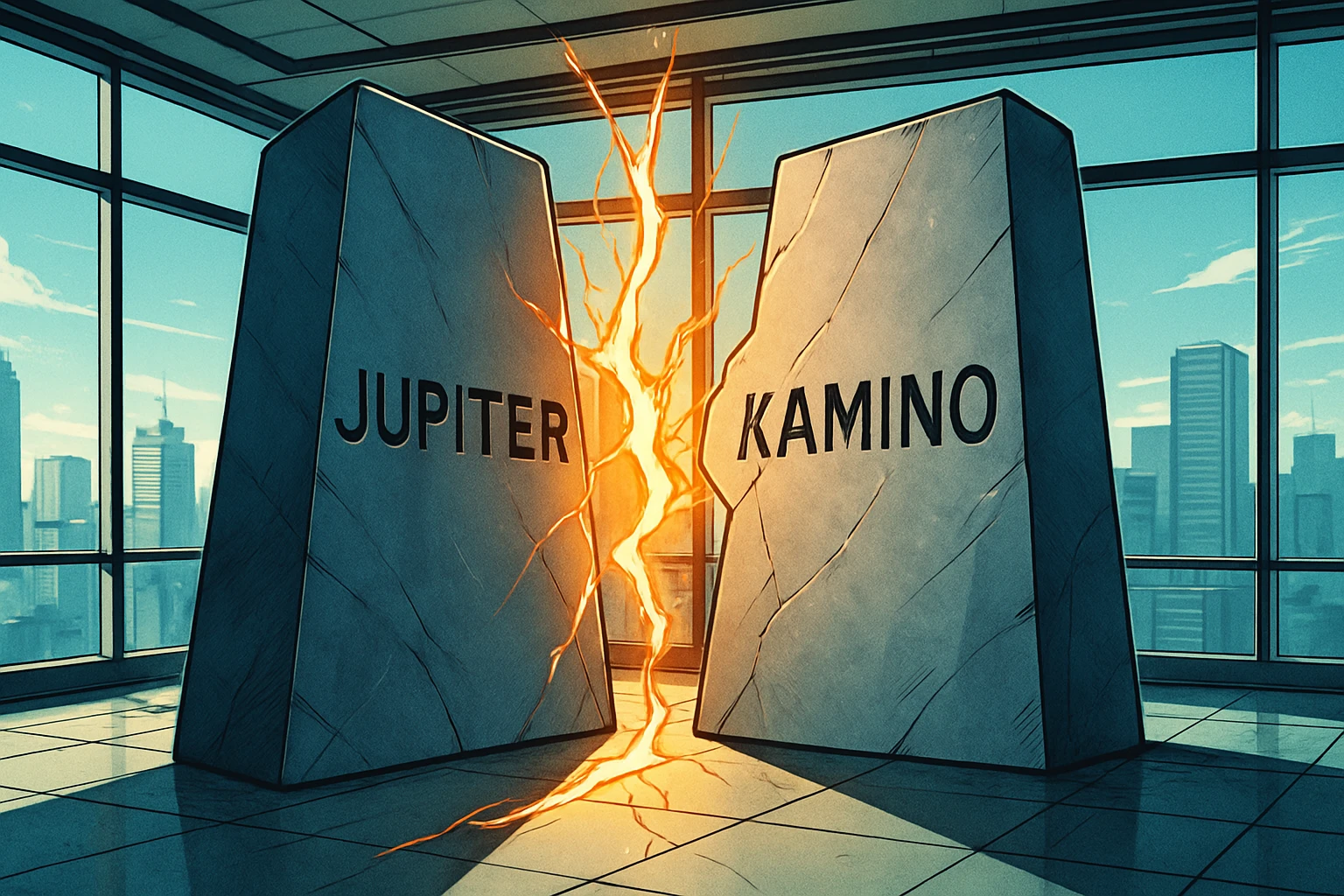California Governor goes all out, Newsom plans to issue "Corruption Coin" to mock Trump
Newsom and current U.S. President Trump have been in constant conflict in recent years, and Newsom intends to launch a "Trump Corruption Coin" to satirize Trump's alleged use of cryptocurrency for personal gain.
Original Title: "Newsom Plans to Issue 'Trump Corruption Coin': What Other 'Questionable Moves' Has the New U.S. President Made Since Taking Office?"
Original Author: Eric, Foresight News
Current California Governor Gavin Newsom and current U.S. President Trump have been at odds for years.
Recently, Newsom stated on the podcast "Pivot," hosted by tech journalist Kara Swisher and New York University professor Scott Galloway, that he plans to issue the "Trump Corruption Coin" to satirize Trump’s alleged use of cryptocurrency for personal gain.
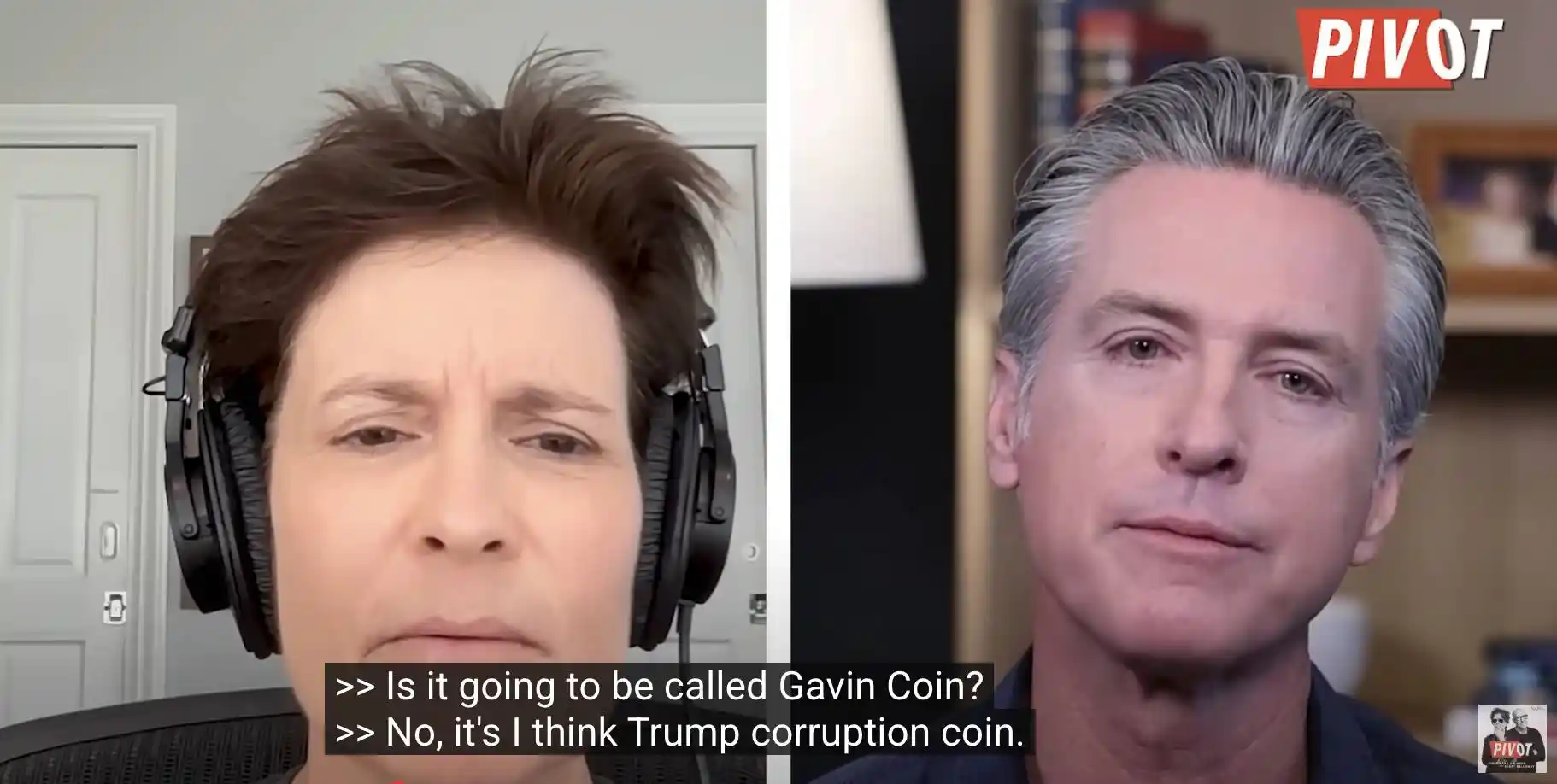
On the podcast, Newsom’s criticism of Trump was particularly sharp. This "deep-seated animosity" is not new; the months-long standoff between the two is both a rallying cry for Americans disgusted by Trump’s alleged abuse of power for personal gain and a microcosm of the ongoing battle between Democrats and Republicans.
Trump’s "corruption" controversies have a long history. According to an investigation by The Washington Post, Trump International Hotel hosted official delegations from at least 47 countries between 2017 and 2020. The Saudi Arabian government alone spent over $270,000 at the hotel, while during the same period, the U.S. government signed arms deals with Saudi Arabia worth $110 billions. Such exchanges of favorable policies for business returns are shocking.
During the term starting in 2025, the Trump family became best known in the Web3 industry for issuing the meme token TRUMP and launching World Liberty Financial. According to The New York Times, as of July 1 this year, Trump and his partners held TRUMP tokens worth $6.9 billions and owned 15 billion WIFI tokens through World Liberty Financial. During the WIFI presale, individuals and institutions including Justin Sun, DWF Labs, and Aqua 1 Foundation made generous contributions.
In late May this year, Trump hosted a banquet at his private country club outside Washington for the top 220 holders of the TRUMP token. Many people hoping to "get close to power" rushed to buy TRUMP tokens before the event. However, the outcome was disappointing: Trump himself only made a brief appearance and gave an inconsequential speech, there was no previously advertised opportunity for "close contact" with Trump, and the food at the banquet was so ordinary that it drew widespread criticism. Such behavior from a national president also sparked public protests.
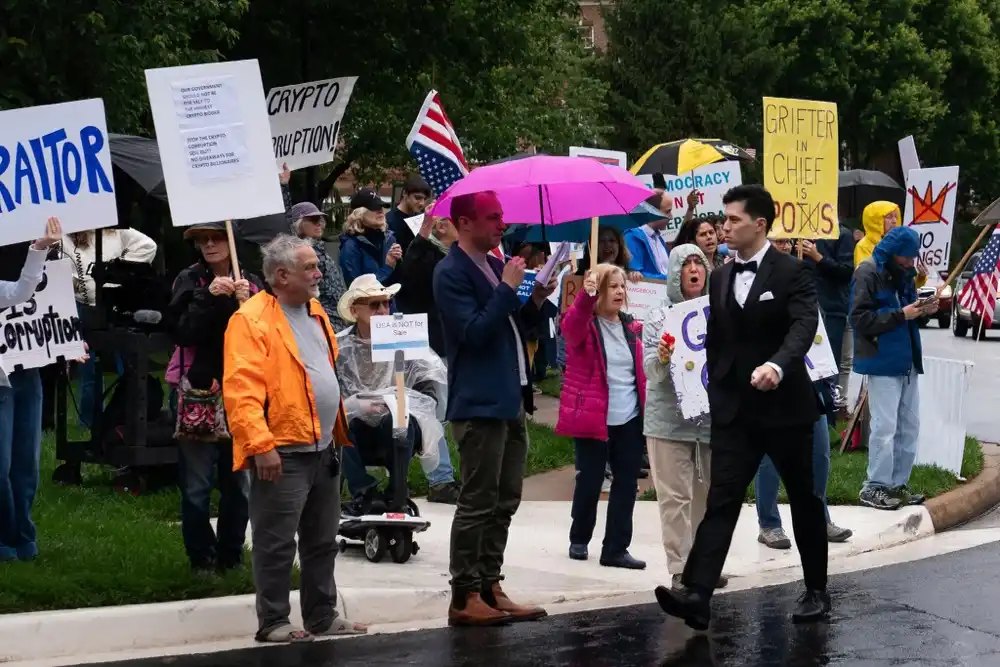
The White House spokesperson insists that the Trump family’s cryptocurrency activities are managed by a family trust and have nothing to do with Trump personally. In reality, the "corrupt" activities involving the TRUMP and WIFI tokens during Trump’s current term are just the tip of the iceberg.
Since the beginning of the year, the most controversial incident involving Trump was the U.S. Department of Defense’s announcement on May 21 that it would accept a private jet worth $400 million from Qatar. According to Xinhua News Agency, critics argue that the president’s acceptance of high-value gifts from foreign governments may violate the "Emoluments Clause" of the U.S. Constitution, which prohibits federal officials from accepting gifts from foreign governments without congressional consent, aiming to prevent officials from being influenced by expensive gifts and making foreign policy decisions that deviate from national interests.
Trump himself, relevant U.S. government parties, and Qatari officials all argue that the plane was donated to the United States as a nation, not to Trump personally. Democrats seized the opportunity to attack, with Democratic members of the House Judiciary Committee announcing an investigation and demanding that the Trump administration submit legal documents explaining the legality of accepting the plane.
Similar examples have become too numerous to count in just a few months. After taking office, Trump abolished government ethics rules that had been in place for 50 years, cut oversight agency staff, and relaxed restrictions on lobbyists and foreign bribery; he also limited the enforcement of the Foreign Corrupt Practices Act under the guise of "national security," effectively protecting the overseas bribery activities of U.S. companies and related politicians.
In addition, Trump has provided ample support to major donors who helped him win the election. Trevor Milton, founder of U.S. electric vehicle startup Nikola, was sentenced to prison for defrauding investors but was pardoned after he and his wife donated $1.8 million to Trump’s campaign. Jared Isaacman, a major investor in Elon Musk’s SpaceX, also became the youngest NASA administrator with the support of Musk and Trump. Musk himself was granted "special government employee" status, allowing him to avoid asset disclosure and conflict of interest reviews. Of course, the eventual falling out between the two is another story.
The New York Times commented in "Why Aren’t Americans Angry About Trump Profiting from His Office?" that Americans may have become numb to presidents abusing their power for personal gain, and that this has, to some extent, become an "unspoken rule." As Trump’s son put it, during Trump’s first term, keeping a low profile still drew criticism, so it’s better to act openly. Michael Johnston, professor emeritus at Colgate University and author of several books on American corruption, said, "I’ve been studying and writing about corruption for 50 years, but I’m still shocked." Even with Trump’s high-profile actions, unless Democrats deliberately use this as an excuse to try to bring him down, the Republican Party and its powerful interest groups are an iceberg that no individual or organization can easily shake.
Current California Governor Newsom now appears to be the most likely "contender" to take on Trump.
Since taking office in 2019, Newsom has been a staunch supporter of the Democratic Party. Upon taking office, he immediately signed SB 54, prohibiting state police from cooperating with U.S. Immigration and Customs Enforcement (ICE) in arresting illegal immigrants. Subsequently, the Trump administration sued California for its "sanctuary state" policy, threatening to cut off federal funding. Newsom responded forcefully, saying, "If you dare, come to California and make arrests." After the second trial, the federal court issued a split decision: the White House must continue to provide funding, but California must hand over some data. Thus, the feud between the two began.
Since then, the two sides have frequently clashed, but the event that truly pushed Newsom over the edge occurred this June.
Just over two months ago, an ICE raid on immigrant communities sparked unrest. Without Newsom’s consent, Trump directly ordered the deployment of 4,000 National Guard troops and 700 Marines to Los Angeles. In response, Newsom immediately sued Trump and the Secretary of Defense for unconstitutional actions and joined 22 Democratic governors in condemning the "federal abuse of military force." Since then, their mutual dislike has escalated into a cyber war of words. In the aforementioned podcast, Newsom did not hold back in his criticism of Trump.

From immigration to military deployment, the conflict between Newsom and Trump is no longer just a policy disagreement, but a systemic confrontation between federal centralization and state autonomy, between "Red America" and "Blue America." Although Newsom has repeatedly stated he has no interest in the presidency, this year he mentioned for the first time that "there is a possibility of running," and the potential showdown between the two in the 2028 presidential election is making this "California vs. White House" drama look more and more like a presidential prelude.
Recently, some believe that the Trump administration’s shocking move to invest in Intel is a plan to implement "state capitalism" to save America, but this policy is in serious conflict with the country’s long-standing free-market culture. While Trump’s unconventional tactics have had some effect, they have also made corruption more visible, and cryptocurrency has inadvertently become a beneficiary of political struggle.
Nevertheless, despite strong support for cryptocurrency in the U.S. Congress, many state-level crypto reserve bills have still failed to make it past governors’ desks. Lobbying by the Web3 industry is a significant source of campaign contributions. While current U.S. support for Web3 is certainly beneficial for the industry’s development, it may not necessarily be out of "goodwill." Beneath the surface of a seemingly crypto-friendly federal government, undercurrents are surging.
Disclaimer: The content of this article solely reflects the author's opinion and does not represent the platform in any capacity. This article is not intended to serve as a reference for making investment decisions.
You may also like
Tether financial analysis: Needs an additional $4.5 billion in reserves to maintain stability
If a stricter and fully punitive approach is applied to $BTC, the capital shortfall could range from 1.25 billion to 2.5 billion USD.
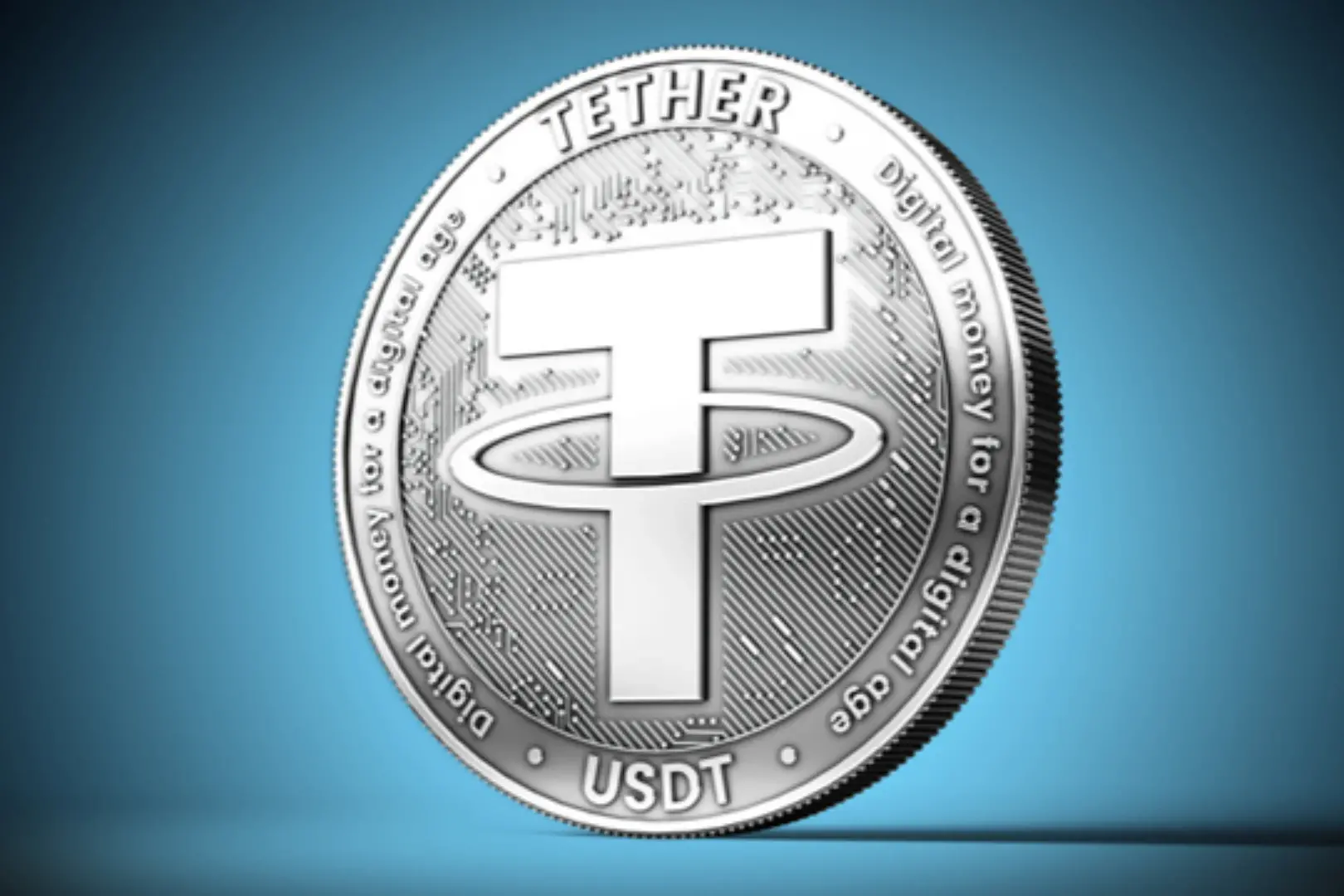
The fundraising flywheel has stalled, and crypto treasury companies are losing their ability to buy the dip.
Although the treasury companies appear to have ample resources, the disappearance of stock price premiums has cut off their financing channels, causing them to lose their ability to buy the dip.

Nearly 10,000 bitcoins withdrawn from exchanges, is the market about to change direction?
